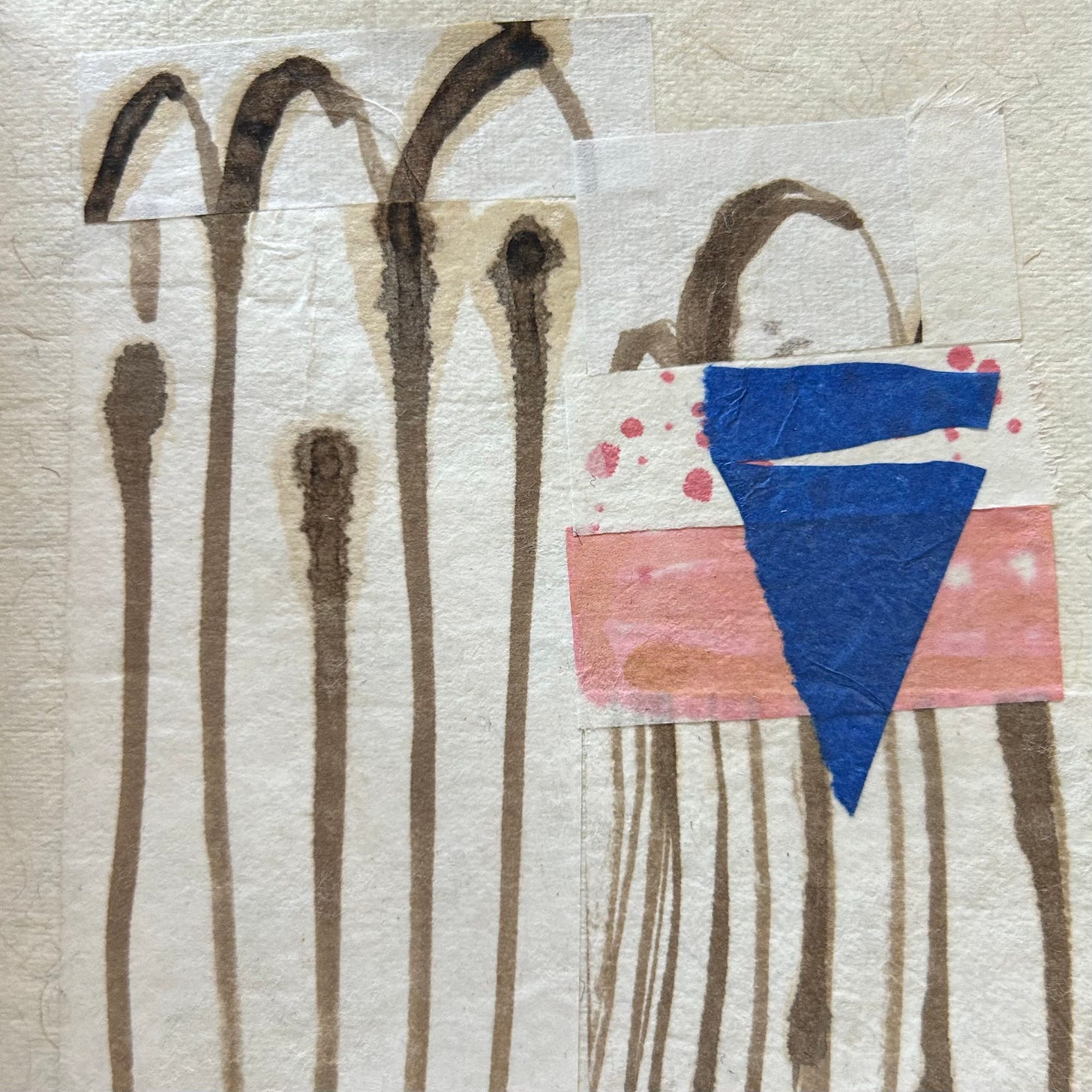… I’d played tons of shows, driving in vans from city to city. And I still found it hard to even say out loud the words “I’m a musician.” It felt too revealing — who was I to want anything? To have a desire strong enough to pursue it? More than that, it felt like bragging. Somewhere in my inner cells I remembered the shame I felt as a little kid when my mom came in and saw me putting on the bandanna in the mirror and said, “You’re going to become vain.” Something cold and acid in her voice communicated that was the worst thing in the world you could be. Now, as an adult, I agreed — we all know assholes who brag a lot, and who wants to be one of them? But I couldn’t untangle the difference between “bragging” and simply wanted to exist in the world and make music and feel proud of what you do.
Neko Case, The Harder I Fight the More I Love You
Introductions are the building block of social ritual. We hand out and pick up subtle and minute cues in those first encounters. We walk away thinking we know something more about a person based on the tags they give themselves. The training starts early. Think how often we ask children what they want to be when they grow up. We say that they can be anything and so they go big. By the time we get to the passage above in The Harder I Fight the More I Love You, we have travelled alongside Neko Case through her free-range childhood of tangled-haired struggles, to her smudged-faced adolescence, and imagined as she morphs from the observant soul to the full-throated woman. The impulse to call oneself an artist, or a writer, or musician often gets batted down by an internal critical voice who says: “Hold on buddy, don’t be so full of yourself. You need these markers (success, fame, aptitude) to be real.” Last week, we wrote about the tribal scars that inform our adult identity. This passage in The Harder … testifies to how powerfully childhood fragments can imprint our sense of self — and perhaps inhibit what we call ourselves.
The Department of Corrections uses Adult in Custody to describe the state’s 12,000+ incarcerated people. This language was adopted to recognize the person first and shift the tone for the department — though INMATE is still imprinted in orange lettering on the back of ODOC-issued blue uniforms. In the PonyXpress workshops and in our editorial content, we will use the term prisoner to be concise, though we prefer to refer to people by their names or refer to them as writers and editors. The Marshall Project has an excellent piece on how they identify people who are incarcerated. Many our writers formed their identity in institutions (foster care, juvenile facility, and into prison) which means that carceral language and SID numbers have headlined their identities.
We read the passage from The Harder … to our writers and asked them to write introductions for themselves. We wanted to write beyond the wall. At Coffee Creek, the women’s prison, we compiled their list: a teacher who niggling at the edge, a spark of imagination, an inventor of the coolest kitchen product, a peace maker, a challenger, the hokey pokey, a light, a watcher of the faces, peer mentor, Odysseus, a contrarian, a practioner.
The exercise cast beyond the AIC demarcation. Even scar tissue changes over time. This requires reconnecting with those moments when we dared to wear the bandanna and then, asking the critic to be quiet. This week we have gathered stories centered on transformation from our writers around the state.
In My Study by Le’Var Howard from Salem:
In my study, I have begun reading material that speaks on four ways to make amends. I find it difficult to process. I worry my efforts will not be enough. Not accepted. But on my journey to recover from shame and guilt and heinous acts, my anger, my rage is as consistent as the unknown of life.
Man of the House by Jacob W. Harper from Pendleton:
There are many moments which define us, moments which make us who we want to be. There are also the moments that without our intention are the crucibles our personalities are poured into, placed among the flames, and then purified through sacrifice.
A Particularity of Order by Dustin Smith from Salem:
I began as pure potential;
A lump of formless clay
Molded into the semblance of man
By constant external pressure.
Streaks of Gold, Flecks of Orange by Tom Derr from Madras:
Others said I should just stick to our kind, the pretty pale blues of the males. But my mind emerged, splurged, excited by the possibilities of the marigold and rose. I just could not stay in my place, it seemed so stolid, such a waste. I wanted to explore, sprout wings, fly off far, far from the shore.
Identity 28 by Uriah A. Vargas from Salem:
But only I can pick my tools.
Life is work.
Thinking it’ll work itself out
is for fools.
The Tapestry of Me by Sarah Tonin from Wilsonville:
I've got a few patches that I've been sewn together, taken
apart and sewn back again.
Just like the relationships that broke me, were
mended or the people I slowly let back in.
My quilt currently sits unfinished while I'm in prison,
there are areas that have become a bit frayed,
waiting to be completed when I get home …
As you read these pieces, think to your own life. Allow yourself five minutes to pick up a pen and write: What do you call yourself? | TDS



I love reading these short pieces each week, with each writer's unique voice. The works often challenge me, they always make me think-in a good way. Thanks to all the writers and to ponyXpress for getting these words out